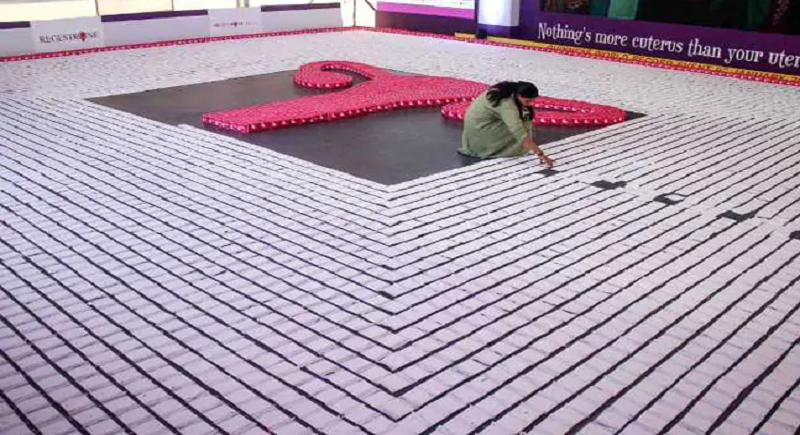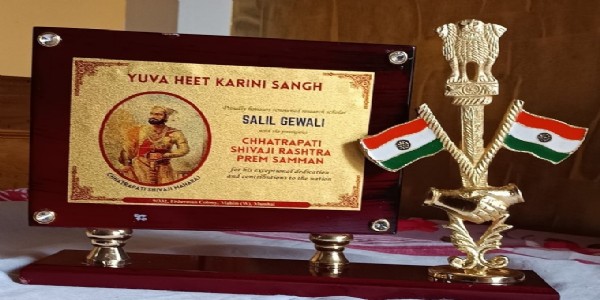Hygiene is a priority; ‘She’ should not hesitate to discuss menstrual cycle
Bengaluru, Jan 19: Guinness World Record with Longest Line of Sanitary Napkins Set in Bengaluru earlier this month. "Sanitary pads are required for every woman for her hygiene. Hygiene is so important otherwise they will have a lot of pelvic infections, urinary infections and all those problems are there," gynaecologist Geeta Pramod Shanbhag said.

Five hundred people at the 62nd All India Congress of Obstetrics and Gynaecology (AICOG) took seven and a half hours to lay out 10,105 sanitary pads in a line 1,078 metres (3,537 feet) long. The feat, verified by Guinness World Record officials, also included the shape of a uterus under the slogan "Nothing's more cuterus than your uterus".
According to a National Family Health Survey (NFHS) report published in 2017, only 58 per cent of women in India aged 15 to 24 uses a hygienic method of menstrual protection, the Hindu daily reported.
In rural and remote areas a primary school is barely equipped with a functional toilet, let alone something as essential as sanitary napkin dispensers. But more than the infrastructure for young girls in many villages, like millions of others in districts, towns and cities across India, menstruation remains a biological event shrouded in mystery and taboo, not to be spoken about openly.
Menstruation is a rarely discussed topic in homes and schools in India. Since 2010, the government has stepped up to address menstrual hygiene.
Apart from their physiological health, their mental health also gets affected due to poor hygienic practices during menstruation and the related social taboo. Almost 23 per cent of girls drop out of school on reaching puberty, which critically undermines their potential as individuals and future workers, according to Dignity for her.
One of the best ways to dispose of menstrual waste is to give it to a biomedical waste incinerator. However, the costs are prohibitive, with biomedical waste incineration firms charging as much as Rs 22/kg of sanitary waste in metropolitan cities such as Bengaluru.
To normalise menstruation, we need to consider options that are economical and have less impact on the environment such as cloth pads and menstrual cups. Policies should be focused on a stringent application of menstrual hygiene schemes in urban and rural areas, access to menstrual products, especially in rural areas, extended producer responsibility by manufacturers of sanitary pads and environmentally safe pilot innovations.




